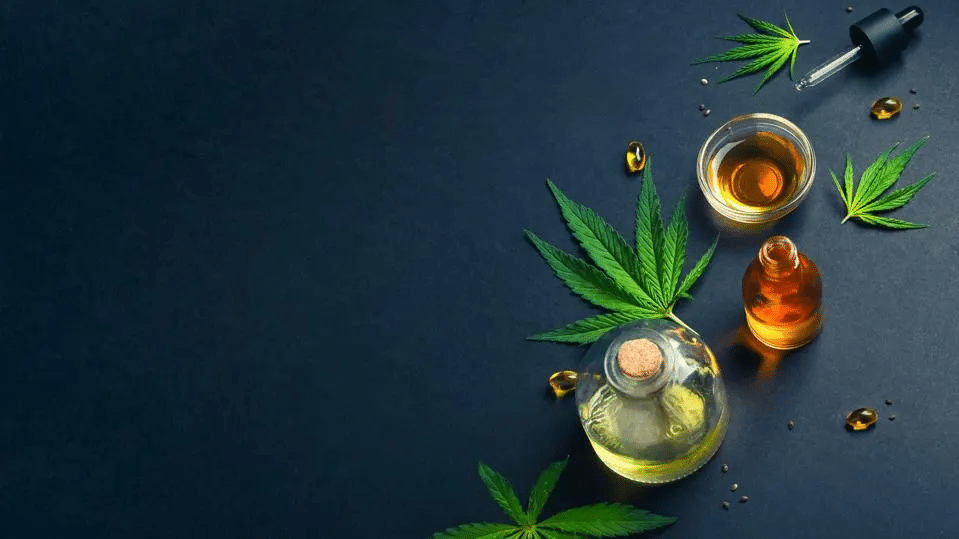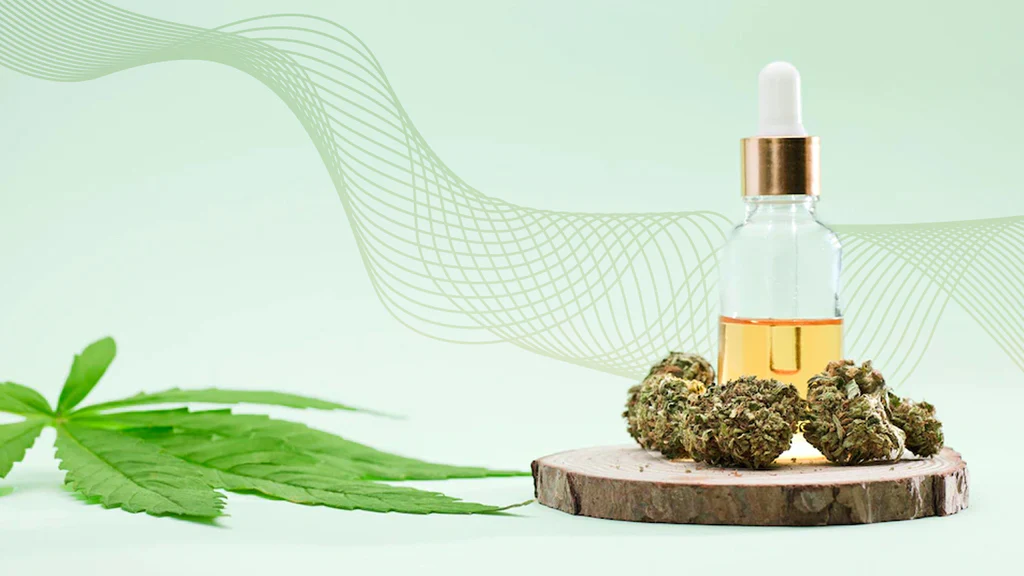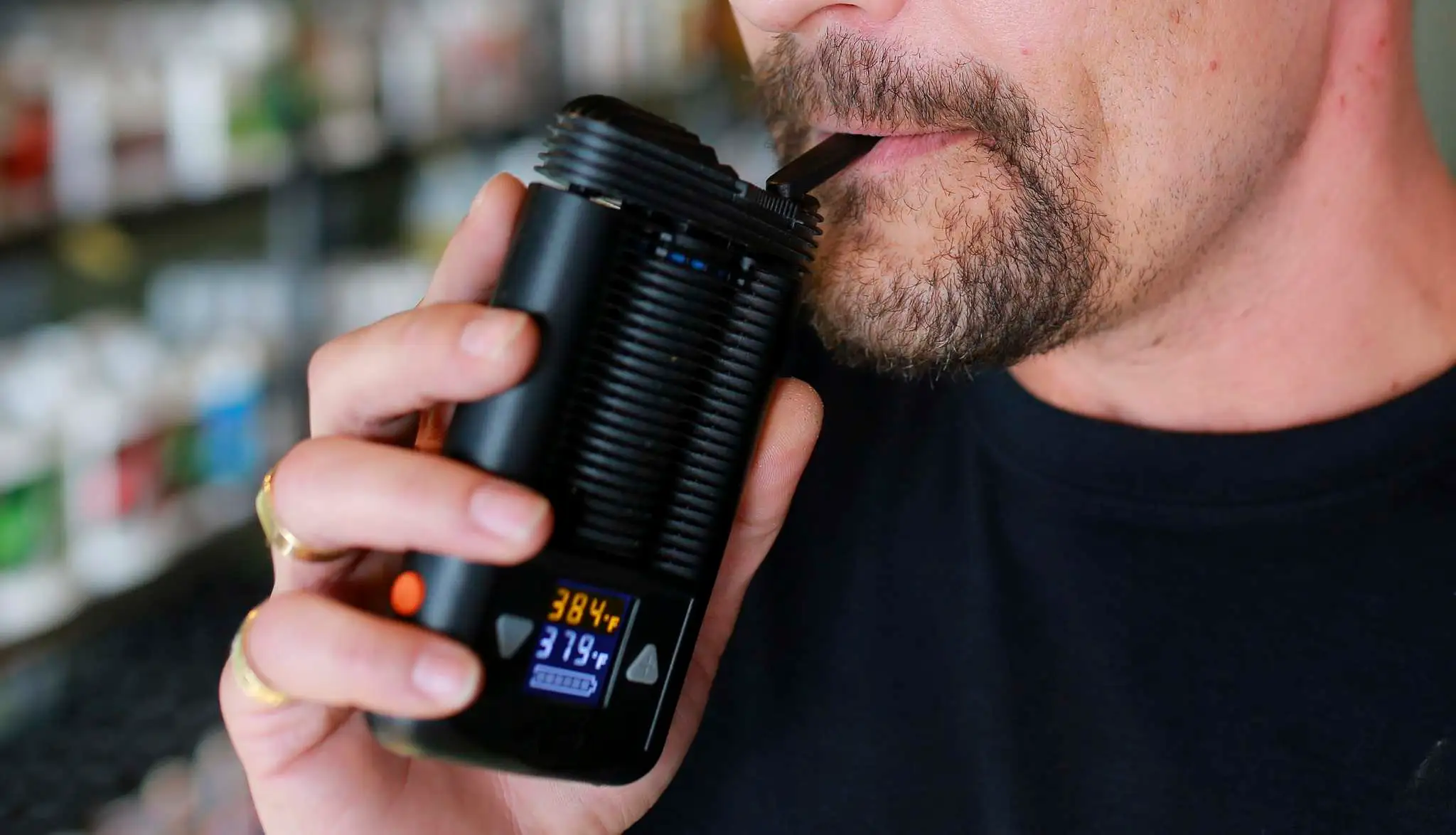Guides
CBD Oil: Benefits, Vaporizer Compatibility & Uses
As the use of CBD oil rises, so does curiosity about its potential uses and advantages. In this article, we will delve into the world of CBD oils, exploring their versatility compared to dry herbs and examining their recreational advantages due to non-psychoactive properties. Moreover, we’ll investigate the medical benefits and healing capabilities of CBD oil – like FDA-approved Epidiolex for treating certain forms of epilepsy or offering relief from chronic pain.
The legal status surrounding cannabidiol products can be complex; hence, we’ll shed light on variations in state laws regarding medical usage while highlighting ongoing research efforts focused on seizure prevention or anxiety reduction mechanisms. Recent studies that emphasize the versatility and efficacy of CBD treatments will be discussed alongside advancements in vaporizer technology designed specifically for oils.
Table of Contents:
- CBD Oil vs. Dry Herbs
- Versatility in Consumption Methods for CBD Oil
- Compatibility Challenges Between Certain CBD Oils and Dry Herb Vaporizers
- Recreational Benefits of Using CBD Oil
- Ongoing Research on Mechanisms Behind Seizure Prevention or Anxiety Reduction
- Recent Studies Highlighting the Versatility & Efficacy of Cannabidiol (CBD) Treatments
- Vaporizers Designed Specifically for Oils & Advancements in Technology
- FAQs in Relation to Cbd Oil
- Conclusion
CBD Oil vs. Dry Herbs
While both CBD oil and dry herbs are derived from the hemp plant, they differ in terms of consumption methods, potency, and compatibility with vaporizers. Comprehending these contrasts can assist customers in picking the most proper choice for their requirements.
Versatility in Consumption Methods for CBD Oil
CBD oils offer a variety of consumption options, such as oral ingestion (tinctures or capsules), topical application (creams or balms), and vaping. This range of methods enables users to personalize their CBD oil experience according to individual needs or preferences. On the other hand, dry herbs are typically consumed through smoking or vaporizing using specialized devices like dry herb vaporizers.
Compatibility Challenges Between Certain CBD Oils and Dry Herb Vaporizers
- Different consistencies: While some vape pens can handle both liquids and solid materials, others may not be compatible with certain types of CBD oils due to their viscosity. For instance, thicker oils might clog up a device designed for use with dry herbs only.
- Vaporization temperatures: The optimal temperature range for activating cannabinoids varies between CBD products (cannabinoids have different boiling points). Some dry herb vaporizers may not reach high enough temperatures to effectively extract all beneficial compounds from concentrated oil forms.
- Incompatible cartridges: Many vape pens require specific cartridges or attachments to accommodate different materials. Using the wrong cartridge with a CBD oil may result in poor performance, damage to the device, or wasted product.
Before using any CBD products with a vaporizer, it’s essential to ensure compatibility and follow manufacturer guidelines for optimal results. As our understanding of the endocannabinoid system continues to grow, so does the need for versatile consumption methods that cater to individual preferences and needs.
In conclusion, understanding the differences between CBD oil and dry herbs is key to finding a vaping experience that works for you. Moving on, let’s explore the recreational benefits of using CBD oil.
Recreational Benefits of Using CBD Oil
For those who wish to enjoy the benefits of cannabis without experiencing psychoactive effects associated with THC, using non-intoxicating CBD oil offers an alternative recreational option that still provides potential advantages linked to cannabinoid consumption. Exploring the non-intoxicating characteristics of cannabidiol (CBD), we may find potential advantages from consuming cannabinoids.
Non-psychoactive Properties of Cannabidiol (CBD)
CBD is a naturally occurring compound found in the hemp plant. Unlike its psychoactive counterpart THC, CBD does not cause any intoxicating effects. This makes it an appealing option for individuals seeking relief from various symptoms without feeling impaired or altering their mental state. By interacting with our body’s endocannabinoid system, CBD can potentially provide numerous health benefits while avoiding unwanted side effects typically associated with traditional marijuana use.
Potential Advantages from Consuming Cannabinoids
- Anxiety Relief: Research suggests that CBD may help reduce anxiety by influencing serotonin levels in the brain and modulating neural activity related to fear response (source). This makes it a promising natural remedy for people dealing with stress or anxiety disorders.
- Sleep Improvement: Some studies indicate that taking CBD before bedtime could improve sleep quality by promoting relaxation and reducing nighttime awakenings (source). For those with sleep issues, CBD may be beneficial in promoting relaxation and decreasing nighttime wakefulness.
- Anti-inflammatory Effects: CBD has been shown to possess anti-inflammatory properties, which may help alleviate symptoms related to various inflammatory conditions such as arthritis or muscle soreness (source). By reducing inflammation, users may experience relief from pain and discomfort associated with these ailments.
Incorporating CBD products into one’s daily routine could potentially offer a range of recreational benefits without the psychoactive effects commonly linked to cannabis use. As further research is conducted, we can expect to uncover even more potential benefits of CBD oil for improving health and well-being.
CBD oil can be employed recreationally, offering users potential advantages from cannabinoids with non-psychoactive properties. Furthermore, medical applications and therapeutic uses for CBD oil are becoming increasingly common in the healthcare field.
Key Takeaway:
CBD oil offers potential recreational benefits without the psychoactive effects of THC. It interacts with our body’s endocannabinoid system and may provide relief from anxiety, improve sleep quality, and possess anti-inflammatory properties that can alleviate symptoms related to various inflammatory conditions such as arthritis or muscle soreness. As more research is conducted on this versatile compound, we will continue learning about its potential applications in promoting overall health and well-being.
Medical Applications and Therapeutic Uses of CBD Oil
The growing body of research on cannabidiol (CBD) suggests that it may have various therapeutic uses across multiple domains. Some of the most promising areas where CBD oil has shown potential benefits include epilepsy treatment, opioid dependence assistance, chronic pain management, and relief from inflammatory skin diseases.
FDA-approved Epidiolex for treating specific forms of epilepsy
In 2018, the US Food and Drug Administration (FDA) approved a prescription drug called Epidiolex, which contains purified CBD derived from the hemp plant. Epidiolex is specifically indicated for the treatment of Lennox-Gastaut syndrome and Dravet syndrome, two rare forms of epilepsy. The approval was based on clinical trials demonstrating its effectiveness in reducing seizure frequency among patients with these conditions.
Reducing withdrawal symptoms in opioid addiction cases
CBD oil has also been studied as a potential aid for individuals struggling with opioid addiction. Research indicates that it may help reduce withdrawal symptoms such as anxiety, insomnia, pain, and cravings by interacting with our body’s endocannabinoid system – a complex cell-signaling network responsible for maintaining homeostasis.
Alleviating chronic non-cancer-related pain conditions
CBD oil may be a viable option for managing chronic non-cancer related pain, such as fibromyalgia and neuropathic pain, by modulating our perception of discomfort through its interaction with cannabinoid receptors in the nervous system. It is hypothesized that CBD oil works by impacting our experience of pain through its interaction with cannabinoid receptors in the nervous system.
Topical application for psoriasis and other similar skin conditions
Finally, CBD oil has shown promise as a topical treatment for inflammatory skin diseases such as psoriasis and eczema. CBD oil has the capacity to diminish inflammation which could lead to a decrease in irritation, discomfort, and swelling associated with these skin issues. Moreover, its potential antibacterial effects could also contribute to faster healing of affected areas.
The therapeutic uses of CBD oil are wide-ranging and the FDA has approved its use for specific forms of epilepsy, opioid addiction cases, chronic non-cancer related pain conditions, and topical application for skin disorders. Due to the varying legal status of CBD products from state-to-state, it is essential to be aware of any potential challenges that may arise when using cannabidiol for medical purposes.
Key Takeaway:
CBD oil has various therapeutic uses, including epilepsy treatment, opioid dependence assistance, chronic pain management and relief from inflammatory skin diseases. The FDA-approved Epidiolex for treating specific forms of epilepsy contains purified CBD derived from the hemp plant. Additionally, CBD oil may reduce withdrawal symptoms in opioid addiction cases and alleviate chronic non-cancer-related pain conditions while also showing promise as a topical treatment for psoriasis and other similar skin conditions due to its anti-inflammatory properties.
Ongoing Research on Mechanisms Behind Seizure Prevention or Anxiety Reduction
As interest in CBD products grows, so does scientific research into their potential benefits and mechanisms of action within our bodies. Recent studies have explored how CBD may help reduce seizures in individuals with epilepsy by interacting with specific receptors found throughout our nervous systems (source). Additionally, researchers are investigating whether CBD can alleviate anxiety symptoms through similar interactions (source). These findings contribute to an expanding body of knowledge about the therapeutic properties of the hemp plant and its potential applications across various medical conditions.
- Note: While we strive to provide accurate information regarding legal matters related to cannabis usage and possession within individual states, laws are subject to change. It is essential for consumers to consult their local regulations and legal counsel before using any CBD products.
The legality and difficulties associated with CBD utilization remain intricate, yet recent investigations have spotlighted the adaptability and productivity of these treatments. By exploring these research findings, we can gain a better understanding on how to best utilize this natural remedy for various medical conditions.
Recent Studies Highlighting the Versatility & Efficacy of Cannabidiol (CBD) Treatments
In recent years, numerous studies have emerged showcasing the potential benefits of CBD in addressing various health concerns. One such study focused on knee pain caused by osteoarthritis, further emphasizing the versatility and efficacy of cannabidiol when treating different medical conditions.
Synthetic CBD Gel for Alleviating Osteoarthritis-Related Knee Pain
A 2017 research trial investigated the impact of a synthetic transdermal CBD gel on those with knee discomfort from osteoarthritis. The results demonstrated that those who used the gel experienced significant improvements in their pain levels compared to participants using a placebo. This study suggests that topical application of CBD products may be an effective method for managing joint-related discomfort associated with this common degenerative condition.
Expanding Knowledge on Cannabidiol’s Therapeutic Properties
- Epilepsy: Research has shown that CBD can help reduce seizure frequency and severity in certain forms of epilepsy, leading to FDA approval for Epidiolex as a treatment option. A study published in JAMA Neurology found that over half of children treated with high-CBD cannabis oil experienced at least a 50% reduction in seizures.
- Anxiety Disorders: Preliminary evidence indicates that CBD may be beneficial for individuals suffering from anxiety disorders. A review of preclinical studies published in Neurotherapeutics suggests that CBD has the potential to reduce symptoms associated with generalized anxiety disorder, panic disorder, social anxiety disorder, and post-traumatic stress disorder.
- Chronic Pain: Cannabidiol’s analgesic properties have been explored in various clinical trials. A systematic review conducted by the Cochrane Library found moderate evidence supporting the use of cannabinoids for chronic non-cancer pain management.
The mounting evidence of CBD’s healing potential shows its adaptability and effectiveness for various medical issues, further affirming its position in both recreational and medicinal contexts.
CBD treatments have become increasingly sought-after as they offer a multitude of healing advantages, prompting further exploration into their potential. With vaporizers designed specifically for oils and advancements in technology, users can now unlock even greater potential from CBD products.
Key Takeaway:
Recent studies have highlighted the versatility and efficacy of CBD in treating various health concerns, including knee pain caused by osteoarthritis. A clinical trial showed that a synthetic transdermal CBD gel was effective in alleviating joint-related discomfort associated with this common degenerative condition. Additionally, research has shown that CBD can help reduce seizure frequency and severity in certain forms of epilepsy, may be beneficial for individuals suffering from anxiety disorders, and has analgesic properties for chronic non-cancer pain management.
Vaporizers Designed Specifically for Oils & Advancements in Technology
As technology advances and our understanding of CBD oil continues to grow, specialized vaporizers designed specifically for oils are becoming more prevalent. These devices cater to both dry herbs and concentrated oils, allowing users to enjoy targeted consumption methods.
Devices Compatible with Both Dry Herbs and Concentrated Oils
Recently, the market has experienced a spike in vaporizer models that can handle not only dry herbs but also different types of CBD items such as waxes and concentrates. This versatility enables consumers to switch between different types of cannabis-based materials effortlessly while still reaping the benefits associated with CBD.
- Dual-use vaporizers: Devices like the Pax 3 offer compatibility with both dry herb material and concentrate extracts, providing an all-in-one solution for those who want flexibility when consuming their preferred CBD products.
- Oil-specific vaporizers: For individuals who solely prefer using CBD oils or other liquid-based formulations, there are dedicated vape pens on the market designed exclusively for this purpose. The KandyPens Rubi is one example of a sleek and portable device optimized for vaping liquids derived from hemp plants.
Increase Interest in Unlocking the Full Potential of CBD through Advancements
The growing popularity of CBD treatments has led manufacturers to invest heavily in research aimed at improving delivery systems such as vaporization devices. As a result, cutting-edge technologies have emerged that enhance efficiency while ensuring consistent dosages during each session. One notable innovation is temperature-controlled heating elements found in some high-quality vaporizers, which allow users to customize their vaping experience based on personal preferences or specific CBD product requirements.
Overall, the continuous development of specialized vaporizers and advancements in technology are making it easier for individuals to enjoy the full range of benefits that CBD oils have to offer. With more options available than ever before, consumers can now tailor their cannabis consumption methods according to individual needs and desires.
Key Takeaway:
Specialized vaporizers designed for oils are becoming more common as technology advances and our understanding of CBD oil grows. These devices can accommodate both dry herbs and concentrated oils, providing users with targeted consumption methods. Advancements in technology have led to temperature-controlled heating elements that allow for customized vaping experiences based on personal preferences or specific CBD product requirements.
FAQs in Relation to Cbd Oil
What are the downsides of CBD oil?
The main downside of CBD oil is that it may cause side effects such as drowsiness, dry mouth, and low blood pressure in some individuals. Additionally, there can be potential drug interactions with certain medications. The quality and purity of CBD products also vary widely due to a lack of regulation. It’s essential to consult with a healthcare professional before using CBD oil.
What are the main benefits of CBD oil?
The primary benefit of CBD oil lies in its therapeutic properties for various health conditions. Research has shown that it can help alleviate chronic pain, reduce symptoms of anxiety and depression, improve sleep quality, and provide relief from epilepsy-related seizures. Moreover, it possesses anti-inflammatory properties which could potentially aid in treating skin issues like psoriasis or acne. For more information on the benefits of CBD oil, visit Medical News Today.
Conclusion
As an avid member of Vape Culture, you may be interested in learning more about CBD oil. This natural compound is derived from the hemp plant and interacts with the endocannabinoid system in the body to provide a range of potential health benefits.
When it comes to consumption methods, CBD oil differs from dry herbs in several ways. For one, it can be vaporized using specialized devices designed for CBD oil consumption. This offers a convenient and discreet way to enjoy the benefits of CBD without the need for specialized equipment or compatibility concerns with dried flowers. Additionally, CBD oil is non-intoxicating, making it a popular choice for those seeking relaxation and stress relief without the psychoactive effects of THC.
Despite legal status variations between states and regulatory discrepancies faced by researchers and consumers alike, advancements in CBD research continue to uncover new therapeutic uses for this natural compound. Check out Vape Culture‘s selection of Dry Herb Vaporizers to suit your dry herb or CBD Oils.




